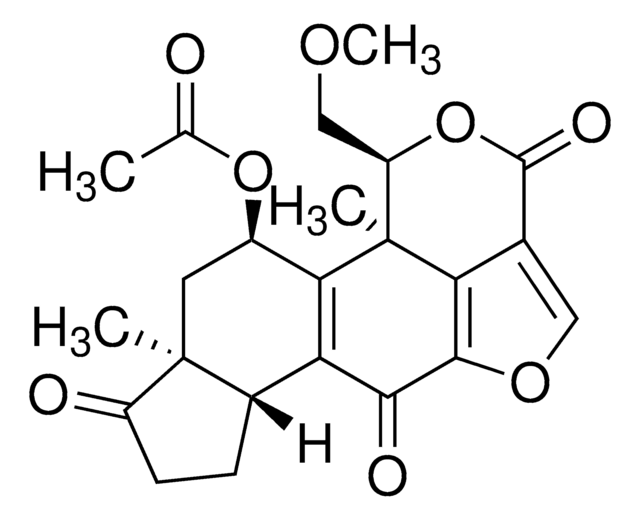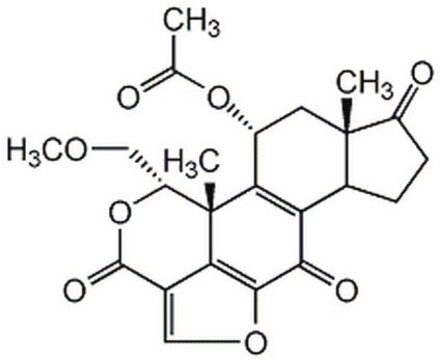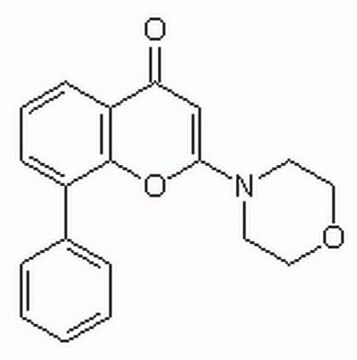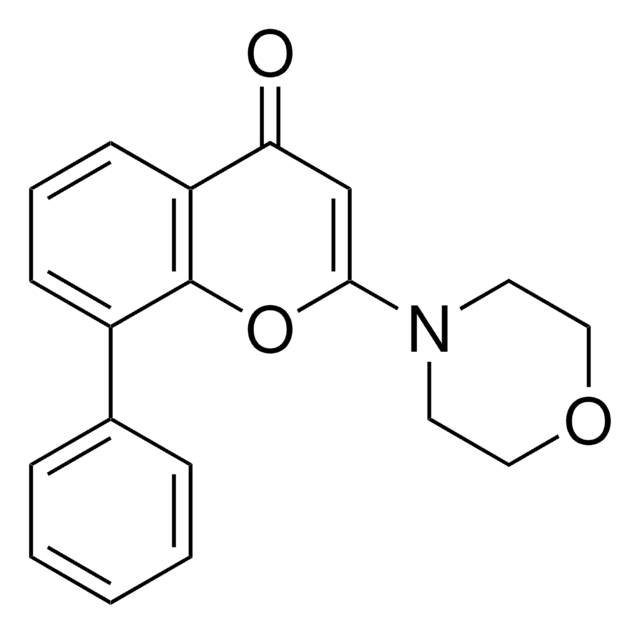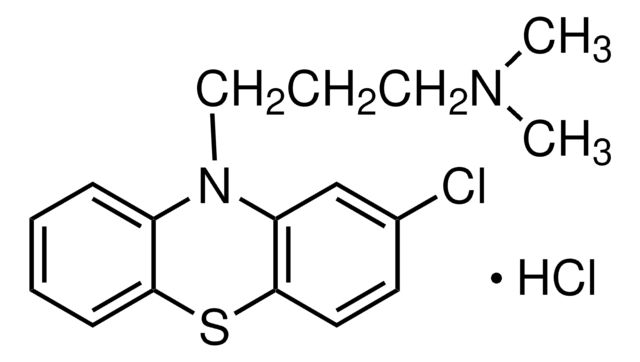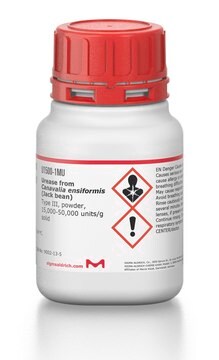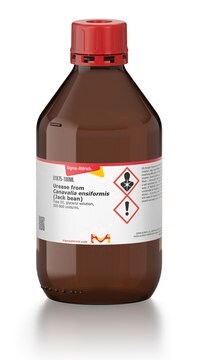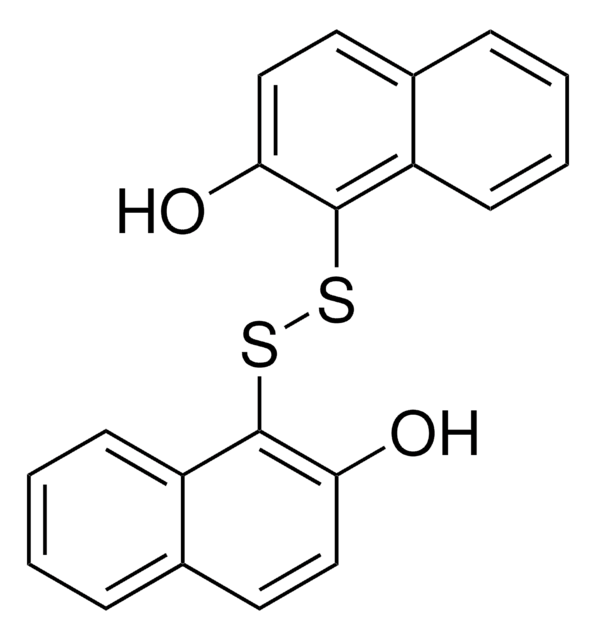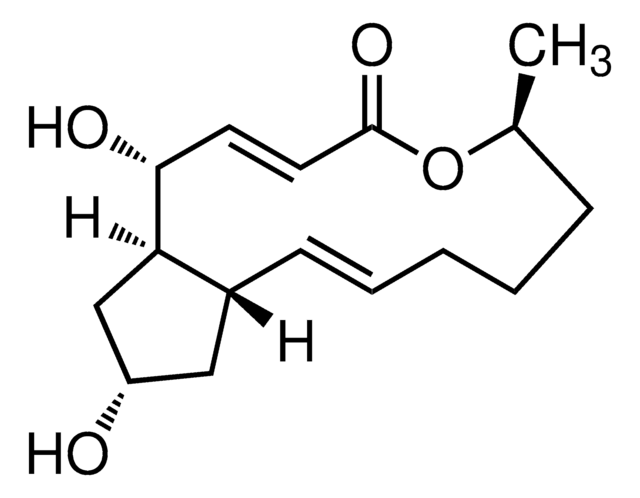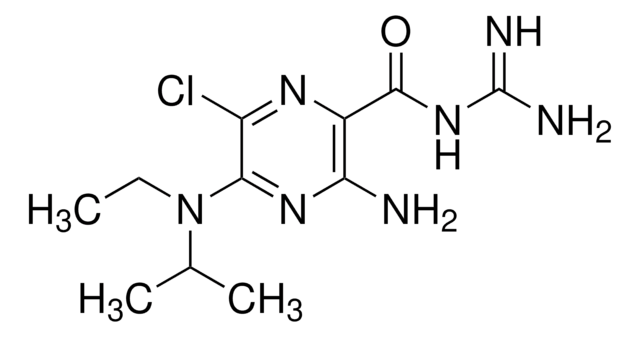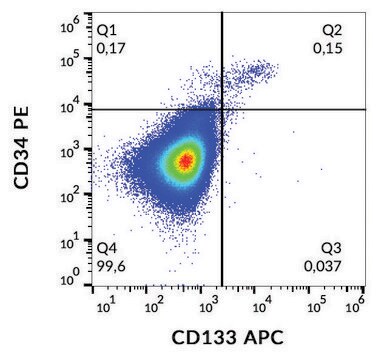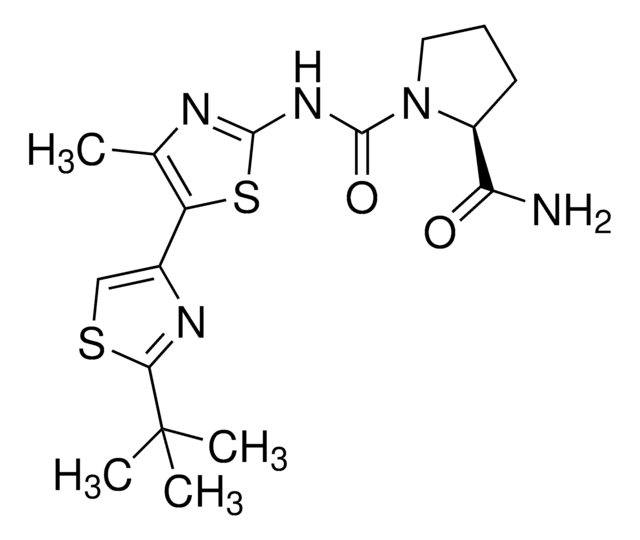W1628
Wortmannin
from Penicillium funiculosum, ≥98% (HPLC and TLC)
Synonym(s):
KY 12420
About This Item
Recommended Products
biological source
Penicillium funiculosum
Quality Level
Assay
≥98% (HPLC and TLC)
form
powder
color
off-white
solubility
DMSO: soluble
H2O: unstable
storage temp.
2-8°C
SMILES string
[H][C@@]12CCC(=O)[C@@]1(C)C[C@@H](OC(C)=O)C3=C2C(=O)c4occ5C(=O)O[C@H](COC)[C@@]3(C)c45
InChI
1S/C23H24O8/c1-10(24)30-13-7-22(2)12(5-6-14(22)25)16-18(13)23(3)15(9-28-4)31-21(27)11-8-29-20(17(11)23)19(16)26/h8,12-13,15H,5-7,9H2,1-4H3/t12-,13+,15+,22-,23-/m0/s1
InChI key
QDLHCMPXEPAAMD-QAIWCSMKSA-N
Gene Information
human ... PIK3CD(5293) , PIK3CG(5294) , PIK3R1(5295)
Looking for similar products? Visit Product Comparison Guide
Related Categories
Biochem/physiol Actions
Features and Benefits
related product
Signal Word
Danger
Hazard Statements
Precautionary Statements
Hazard Classifications
Acute Tox. 1 Inhalation - Acute Tox. 1 Oral - Acute Tox. 2 Dermal
Storage Class Code
6.1A - Combustible acute toxic Cat. 1 and 2 / very toxic hazardous materials
WGK
WGK 3
Flash Point(F)
Not applicable
Flash Point(C)
Not applicable
Personal Protective Equipment
Choose from one of the most recent versions:
Already Own This Product?
Find documentation for the products that you have recently purchased in the Document Library.
Customers Also Viewed
Articles
We present an article about how proliferating cells require the biosynthesis of structural components for biomass production and for genomic replication.
Our team of scientists has experience in all areas of research including Life Science, Material Science, Chemical Synthesis, Chromatography, Analytical and many others.
Contact Technical Service